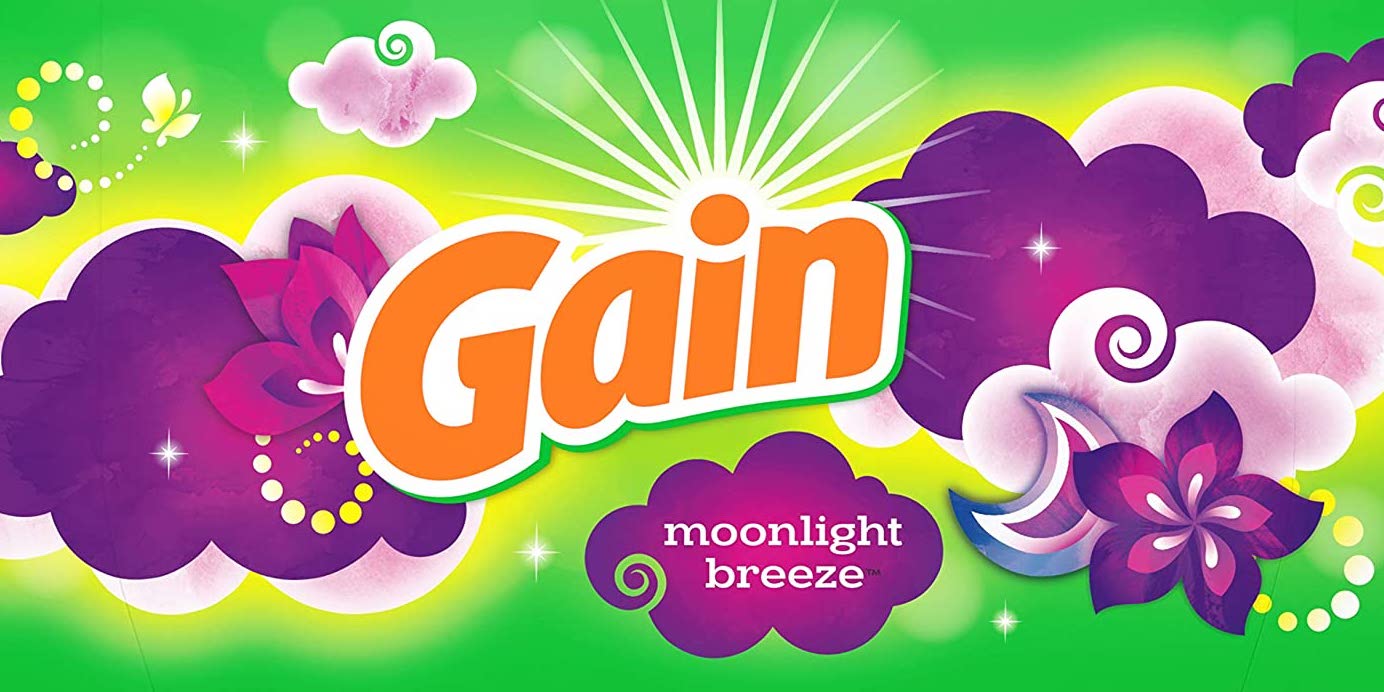
Load up on Gain Fabric Softener Dryer Sheets at Amazon 240pack now 5
To reduce static cling without using dryer sheets, you can try adding a half cup of white vinegar to the rinse cycle, using wool dryer balls, or hanging your clothes to dry. You can also try reducing the amount of synthetic fabrics in your wardrobe, as these are more prone to static cling.

11 NoFail Ways To Reduce Static In The Dryer Without Fabric Softener
In addition to reducing static, they also reduce drying time and fluff clothes. Diy Natural recommends using six or more in the dryer for best results. 6. Vinegar in the Dryer. Using white vinegar in the dryer is another great trick for eliminating static. Simply spray a clean washcloth, sock, pre-cut piece of cloth or any other garment with.

11 NoFail Ways To Reduce Static In The Dryer Without Fabric Softener
To get rid of static cling without dryer sheets, spray a clean washcloth or other fabric with white vinegar and add it to the dryer with your laundry, as it effectively keeps the air damp and reduces cling.. Yes, you can put a ball of aluminum foil in the dryer to reduce static electricity and keep clothes crisp, without leaving grime on.
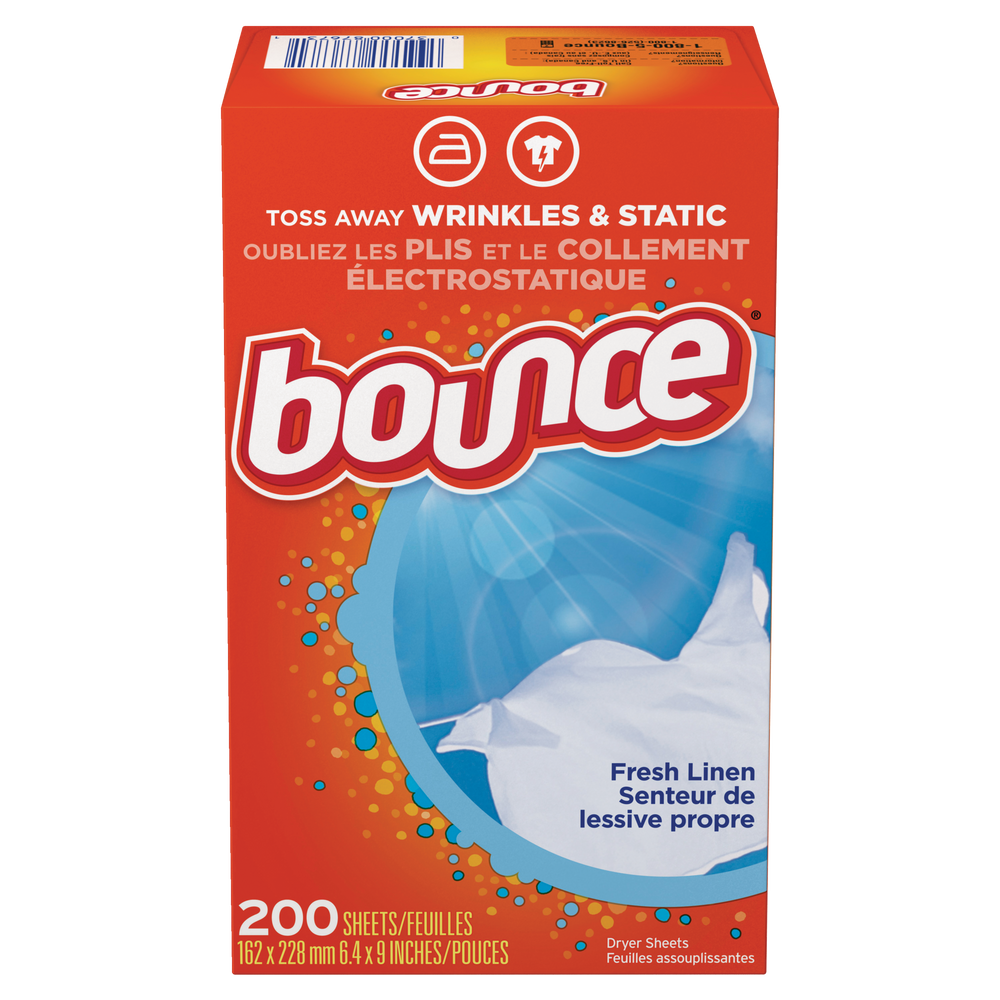
Bounce Dryer Sheets, Fresh Linen, 200pk Canadian Tire
Hang Dry Wisely: When hang-drying your clothes, keep a few tips in mind to dry clothes without dryer sheet. First, shake out each garment before hanging it up. This helps to release any static that may have built up while in the washer. Secondly, use wooden clothespins instead of metal ones, as metal can contribute to static.

Relife Rl073 Multifunction Pry Tool.doublehead Plastic/metal Blade
Vinegar has a second use for how to get rid of dryer static. Simply add ½ cup of white vinegar to the fabric softener compartment of your washer to reduce static in the dryer. This natural fabric softener relaxes clothing fibers so they're less likely to cling together during tumbling. Less cling means less exchange of electrons and less static.

Anti Static Conductive Earth Fabric Making Grounded Flat Sheet With 4
All you need is: Fabric scraps (you can use washcloths, cut up old t-shirts, scrap fabric, etc.) 1/2 cup of distilled vinegar. 10 drops of the essential oil of your choice (lavender, citrus, or eucalyptus are great options) A glass container with an airtight lid (such as a mason jar) To make your own DIY dryer sheets:
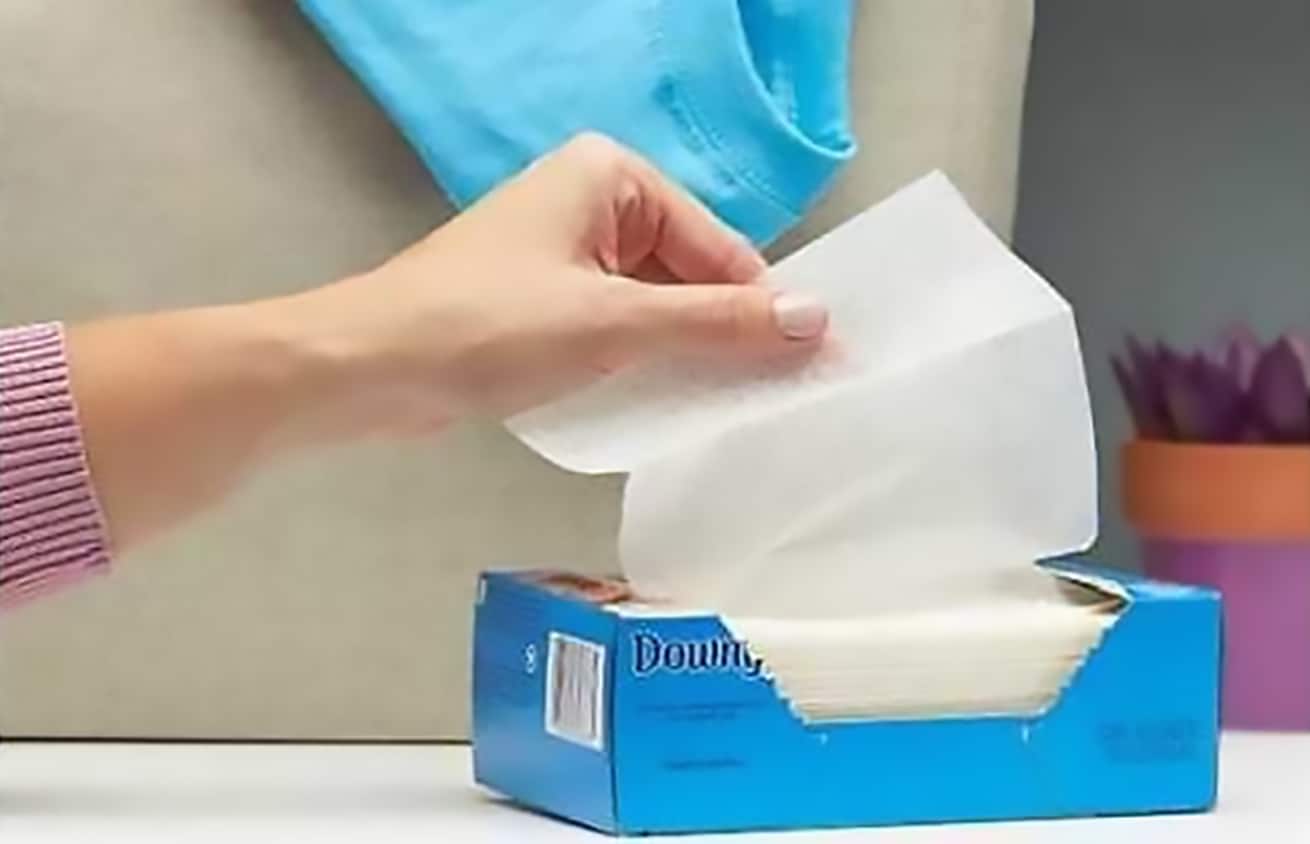
How To Use Dryer Sheets
Add some dryer balls to the dryer, which separate fabrics and reduce friction. Use dryer sheets or fabric softeners to smooth and soften your laundry. I always use these tricks when drying bedsheets in the dryer, and they work wonders. My sheets come out clean, wrinkle-free, and static-free. I especially love using dryer balls because they are.
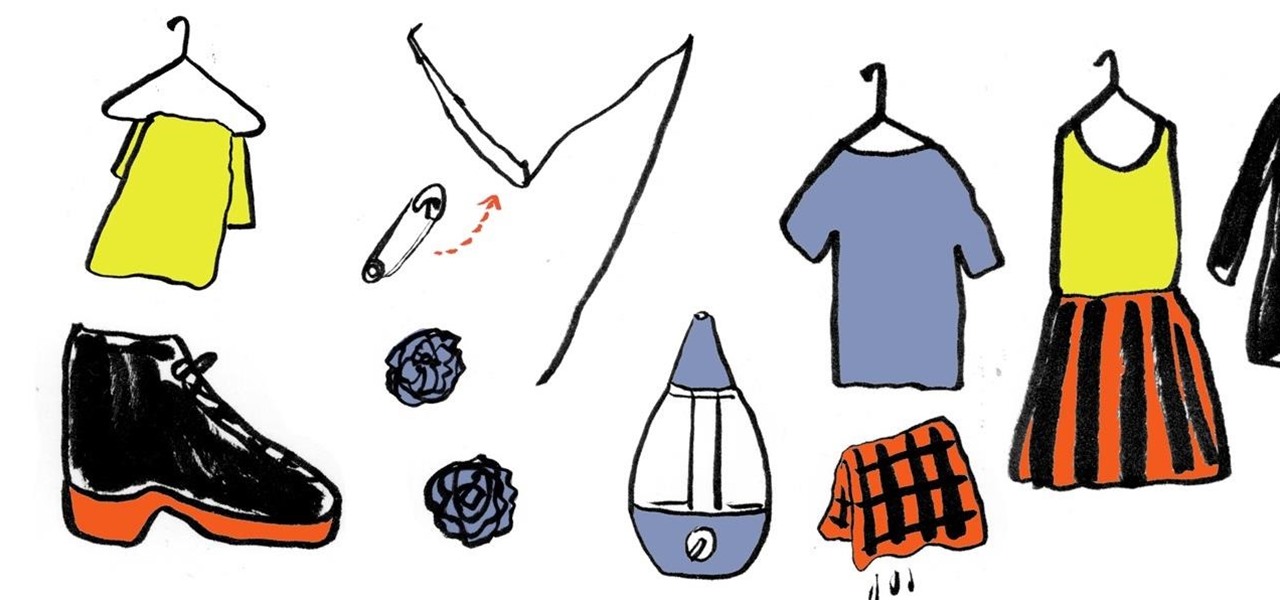
9 DIY Ways to Eliminate Static Cling Without Using Dryer Sheets « The
The heat from the dryer will help release the 100% biodegradable saponin from the shells, leaving freshly scented, static cling-free and softer clothes. Soap nuts are both compostable and reusable dryer sheets. Allow them to dry after every use, and they'll be good to go tumble for laundry loads to come. 3. Vinegar.

DR.EASY Dryer Sheets Plant Based Formula Fabric Softener
Here are some ways you can try to reduce static cling without dryer sheets. How To Reduce Static In The Dryer: 1. Reduce Drying Time. Static is caused by electrically charged dry air. So adding some moisture can combat it. By drying your clothing so they are still the tiniest bit damp when they come out of the dryer, you will be able to avoid.
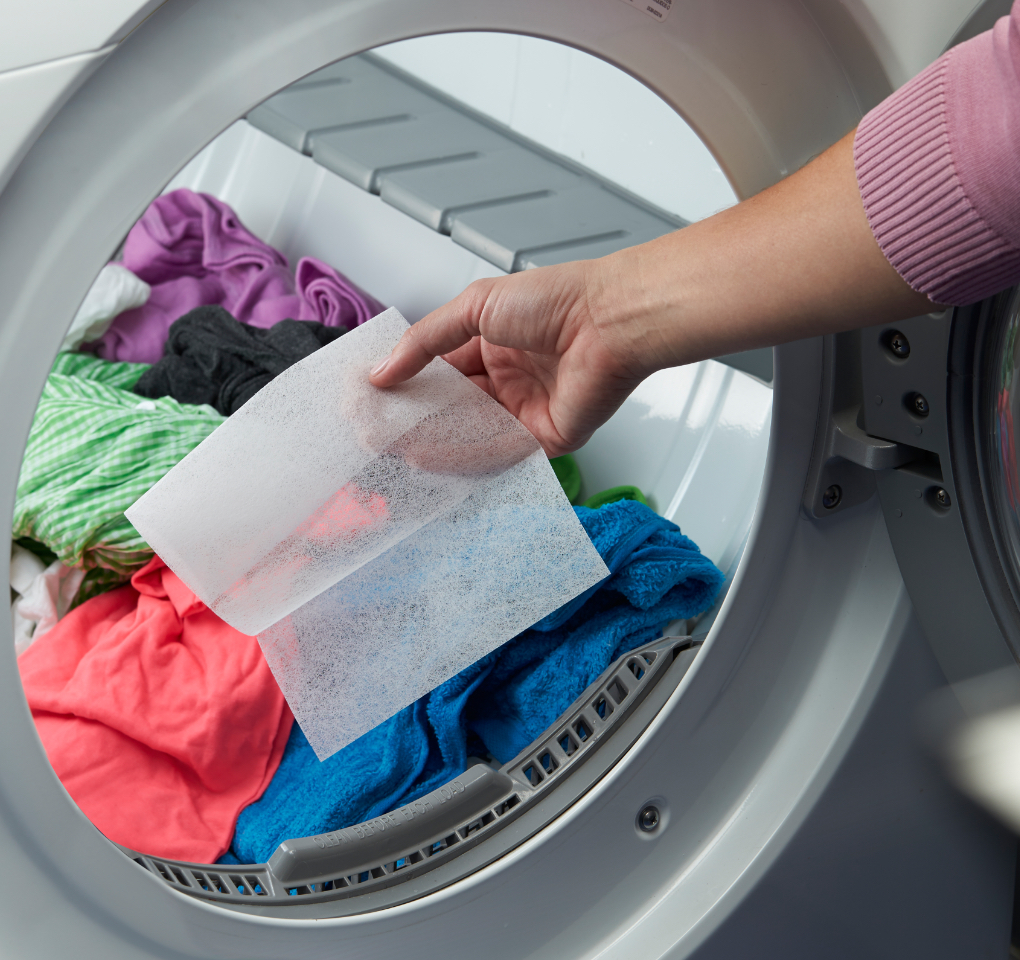
How To Remove Static Cling From Clothes in Dryer Downy
GO TO SHOP. 2. Use Wool Dryer Balls. Wool dryer balls naturally absorb moisture during the drying cycle. By holding onto a little bit of moisture, dryer balls prevent clothes from over-drying, which is a root cause of static cling. Depending on the size of your laundry load, 3-6 dryer balls should be enough to prevent static cling.
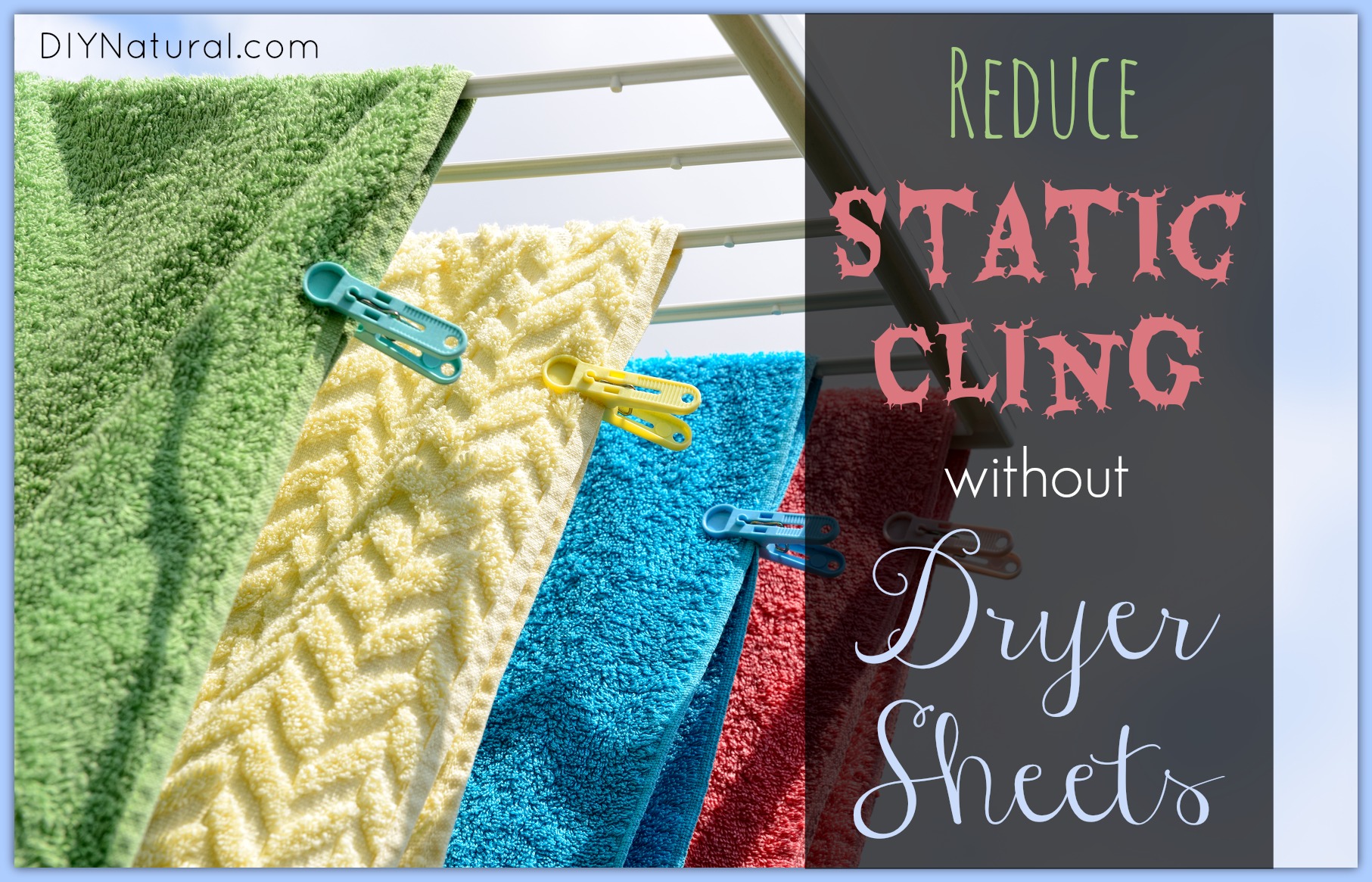
How To Get Rid of Static Cling 10 Solutions to Control Static Cling
Using Sprays and Liquids to Prevent Static. Download Article. 1. Add vinegar to the laundry after the rinse cycle. Simply pour 1/4 to 1/2 cup of white vinegar to the laundry load during the rinse cycle and your clothes should come out clean and static free.

Dryer Sheets vs. Fabric Softener 10 Differences (& Why to Avoid Both)
Dryer balls reduce the drying time and static buildup. Use dryer sheets, which cover fabrics with liquid surfactant to reduce static cling. Separate natural from synthetic fabrics before drying. Air dry synthetic fabrics, if possible. Shake clothes when unloading them from the dryer. Give each item 2-3 quick shakes before placing clothes on.

Dryer Sheets CrueltyFree Kitty
Dryer sheet alternatives to keep your laundry soft, static-free and smelling fresh, but free of the toxic chemicals found in regular dryer sheets.. more eco-friendly ways to scent, soften & reduce static in your laundry if you so desire: Natural Ways to Soften Laundry: Add 1/3 cup of salt or baking soda in with your detergent in the wash.

Home Textiles Products Dry & Soft 3/4pcs Process Printing Washed Cotton
The collisions between the wads and the drum of the dryer will compact them in to a compact, egg-shaped nugget. The aluminum rubbing against the clothes will have exactly the same effect as that copper rod. It absorbs all the static. In fact, it does so more thoroughly than dryer sheets ever can.
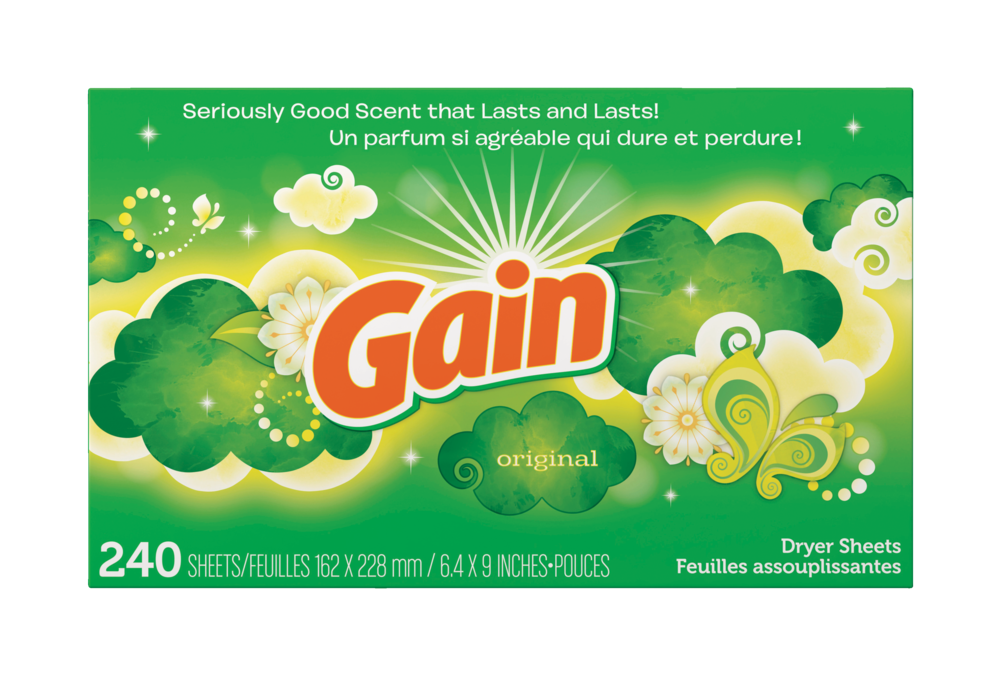
Gain Dryer Sheets, Original Scent, 240pk Canadian Tire
Aluminum foil balls reduce static twofold by discharging the buildup of static electricity between clothes. They also keep clothes separated, reducing their exchange of static-causing electrons and shortening drying times. To make aluminum foil dryer balls, tear off a 3-4 foot sheet of foil and compress it into a tight ball.
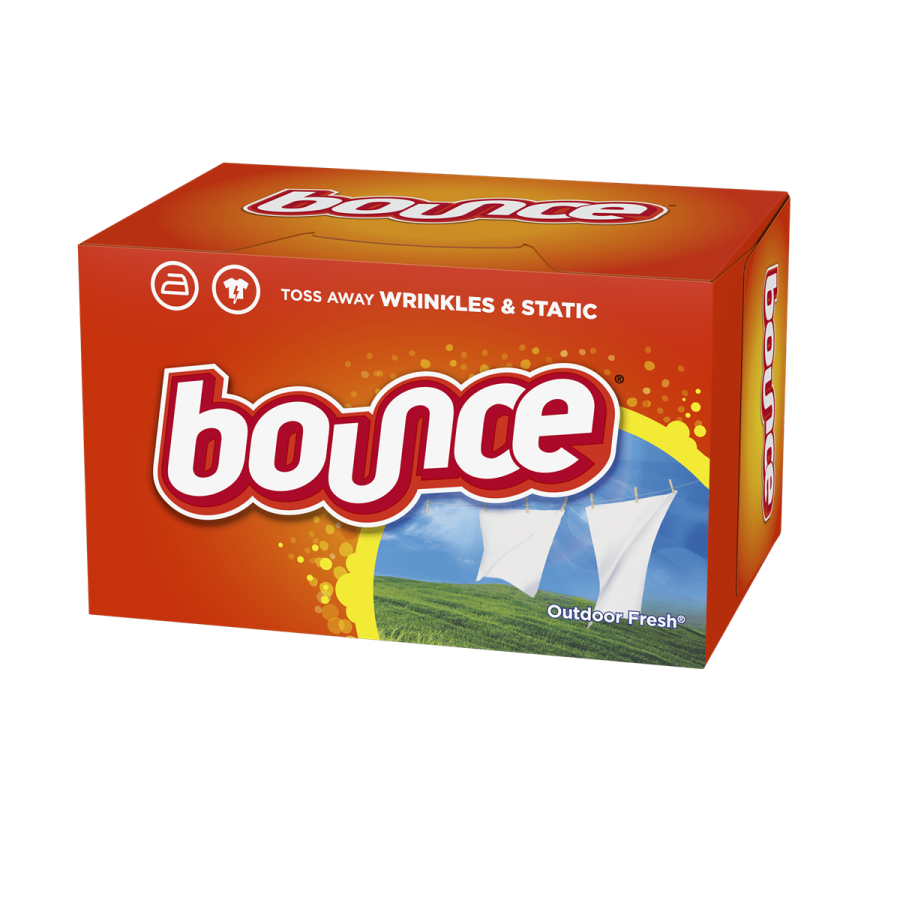
Bounce® Dryer Sheets Italfoods Inc
Baking soda is an additive to some detergents for enhanced cleaning power, but it also works as a fabric softener when added before the rinse cycle. "Half a cup of baking soda helps soften water and reduce static," says Cotter. "It's natural, doesn't have any harsh chemicals, and won't irritate your skin.". Credit: Sarah Crowley.